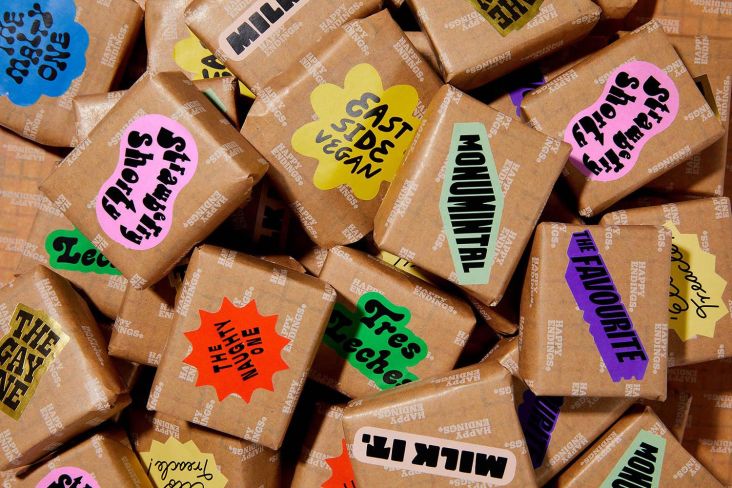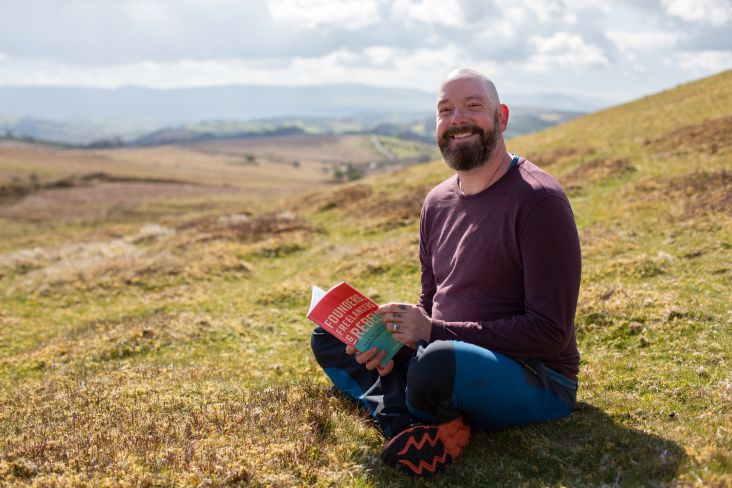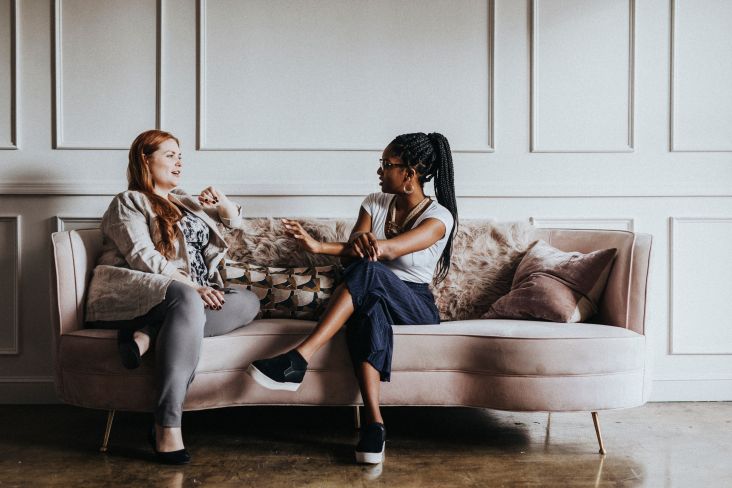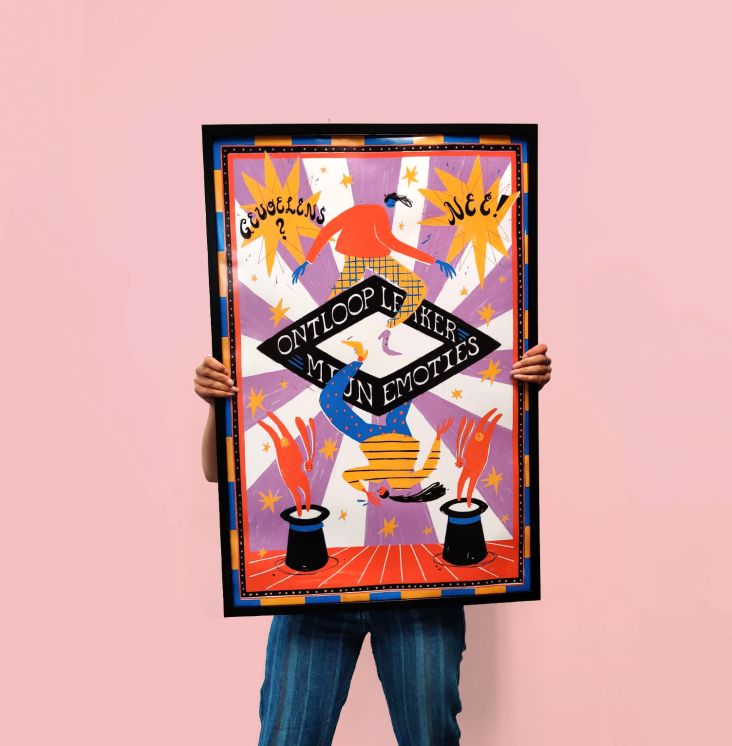Positive stories from freelance creatives to boost your mood in a recession
Feeling grim about your prospects? We help lift your mood by sharing positive stories from creatives about the moments that make life worth living.

Image licensed via Adobe Stock
On a bit of a downer? Well, that's not surprising. The global economy is currently on a downturn, and people are feeling the strain across the world. And even if you're still managing to keep on top of the rent, there's no shame in feeling a little down about your prospects for continuing success as a freelancer.
But there's a danger that if you let yourself slide, then feeling "a little glum" can transform into actual depression. So we're here to remind you that, as the saying goes, it gets better. As long as you keep a positive mindset, things will turn around, and often in the most unexpected ways.
To put meat on those bones, we asked the Creative Boom community to share their positive stories of the moments that have helped keep them going despite the gloomy climate. We share some of the best anecdotes and observations below, and you can see the full thread here.
1. Seeing your work in the wild
When everything seems a little hopeless, there are always things to look forward to. And here's one that almost every freelancer can anticipate in their future: that serendipitous moment of seeing your designs on products, posters, or publications in a public space.
Art director and illustrator Neil Swaab recalls: "One of the best moments was getting to see my art used as key art for a Broadway musical. I walked into the subway, and my art was everywhere at every station and up huge on Broadway. What a cool moment!" Similarly, for artist and illustrator Magdalena Pankiewicz, the turning point was seeing her cover design appeared on Wired IT last year. "I think I've never been so proud of myself, and I feel like I can do anything now," she enthuses.
Illustrator Adrian Bauer will never forget "seeing my illustration printed in real life, in the magazine on the newspaper stand, not to mention writing the first invoices and being able to make a full-time living from it. Goosebumps moment!"
And it doesn't matter what stage of your career you're at; such moments can make a big difference. As Mathias Forbach says: "I've dealt with a huge imposter syndrome as an illustrator, and until I was 36, I'd never felt proud of myself. That changed on the day a friend shouted at me and made me cry after seeing my illustrations on two real-life Swiss aeroplanes. Only then could I clearly see I was good at what I do."
2. Picking up a book you worked on
Our work as creatives often appears fleetingly, but if you're lucky enough to collaborate on a book, there's more scope for seeing it out in the world. There's something quite magical about a real, physical book, which perhaps explains why this antiquated media format continues to thrive in the digital age.
Illustrator Rebecca Mills, for example, may have over 16 years of experience, but she still gets a kick out of picking up a book she worked on and thinking "I helped make that." Similarly, illustrator, graphics and motion designer Stephanie Jade cites: "Being able to go into a Waterstones and pick up a book I worked on; knowing my art is sitting in shops and on people's shelves at home always gives me a warm fuzzy feeling."
And this has a particular special resonance for designer and illustrator Daniele Simonelli. "I'm from a small town near Rome, where there were no bookshops when I was young," he explains. "So to buy a book, I had to make a one-and-a-half hour trip by train and bus to a big bookshop in the city. Today, in that same bookshop, and many others, I can find some of the book covers I've designed over the last years for some of the biggest Italian publishers. And every time, the inner 15-year-old in me is so proud."
3. Seeing the money roll in
While passion matters more than money to most creatives, getting paid well for your work has obvious satisfaction, too. And freelance designer Alex Foxley recalls fondly the moment he realised his first year of freelancing had earned him more than at any previous studio job. "Freelancing can definitely reward the hard-working," he points out.
Many of us avoid staring at our accounts too often. But once you do, you'll often find you're doing better than you think. In fact, one of the best moments as a freelancer will come when you start to turn down work as a result. Web designer Khaldoon Alnuaimi, for example, fondly remembers: "making enough money that when my friends approached me to build a website, for which they were willing to pay for, I advised them they might not need one, and proposed alternative channels."
For UK-based illustrator Sarah Coleman, aka Inkymole, a particularly proud moment came when "we realised we'd been able to employ an accounts lady a day a week for over ten years – which we still do – while also being in a position to employ a series of excellent assistants, which we've had since 2001. One of those was signed by my agency within a couple of years of being with us and had his own flourishing illustration career."
4. Landing a dream client
We all have a dream client: a brand, band or person we've always wanted to work with. So when you're feeling down, it's worth remembering that as long as you keep improving and being persistent, you're more than likely to one day achieve that dream.
For surface pattern designer and illustrator Gail Myerscough, for example, it was being asked to design the artwork for Dave Rowntree's debut solo album, Radio Songs, which was released last January. And for graphic designer and illustrator Emma Rodriguez, it was: "finding a long-term client with a record label in Germany, for whom I've been making cover art for the last few years. Making cover art is a dream of mine, so I feel so lucky to work on them."
Daniele Simonelli, meanwhile, remembers being tapped by Pentagram for a project on nature preservation as a key moment in her career. And fashion illustrator Jacqueline Colley recalls: "I wrote a list of dream clients years ago, and Hermes was at the top of that list. But unlike everyone else on there, I didn't dare contact them. I couldn't imagine they'd ever want to work with me. But they're now one of my clients, and I will never stop pinching myself!"
5. Reflecting on your achievements
Need a mood boost? Then here's an easy way to get one. Simply take a step back to assess your career progress. It can be surprisingly rewarding to think back and reflect on how far you've come so far.
"Actually, going freelance in the first place was the proudest moment for me," says illustrator and designer Pete Clayton. "It was a brave step, and I take my hat off to anyone who goes for it as it isn't easy, although boy, is it rewarding." For brand designer and illustrator Joel Anderson, meanwhile, the big moment was "when I made it to my first anniversary of freelancing. I was still running it and making work! I didn't even know I had it in me."
For art director Michael Miller, a recent highlight was adopting "a European-style work schedule: more time off, less time in a hamster wheel grinding." And illustrator and designer Carina Lindmeier gives herself a confidence boost by periodically looking over her best work. "The moment I updated my website after quite some time was truly eye-opening," she explains. "I gathered all the projects together and couldn't help but think, 'Wow, did I really accomplish all of this?'
"I believe it's crucial, from time to time, to reflect on everything we've achieved, how far we've come, and the small successes we accumulate every day, week, and month. It's far more significant than money or having big-name clients; it's all about personal growth."
6. Giving back
As humans, we are all social animals. So, another common way to give yourself a mood boost is to use your work to give back.
Mentoring emerging creatives, for instance, brings immense fulfilment to conceptual illustrator Ollie Hirst. "It not only reaffirms to me that I'm doing something right here, but proof that leaning into something unique and personal to you can not only build a client base in a very competitive market, but a community too," he says.
Similar, independent design executive Rachel Gogel values being able to speak at industry events and volunteer to advance women in design through AIGA. "I feel privileged to be able to 'design my time'," she says. "I can be more intentional about finding value-enriching work, teaching grad students part-time, speaking at industry events, mentoring emerging talent, and volunteering for women-led efforts as an AIGA SF Board Member. I'm proud of running my solo venture business and ultimately redefining what a 'successful career' looks like because I can also show other women it's possible."
Illustrator Niki Groom, aka Miss Magpie Spy notes that money is not the only way your work can be valued. "I used to be excited and proud to work with big brands on jobs many people saw," she explains. "But last year, I got paid to illustrate at a local Peace Feast with a community group I'd been working with. It was so nice to see everyone happy to see drawings of themselves online."
For similar reasons, pattern designer and illustrator Rachel Panckhurst fondly recalls work she did at Christmas for homelessness charity Shelter. "As an artist, to have my hand-painted artwork on a door – inspired by a real-life story of a person helped by the charity – was something special," she remembers. "I was amongst ten artists who had their artwork displayed in Birmingham New Street Station last December."
Conclusion
Of course, stories like this can be a double-edged sword. If you see them in a negative light, they can make you even more miserable, especially if you dream of achieving things but haven't yet. But if you reframe them in a positive light, they're a great source of hope for the future because if other creatives have done all these things, then there's nothing to stop you: you just have to persevere and be patient. And don't forget: in tough economic times, simply enduring through grit and ingenuity is an achievement in itself.
The takeaway? Even when markets stumble, you can continue thriving as long as you stay adaptable and true to your passion. And you don't have to do it alone: the creative community is full of professionals willing to lift each other up during the trickiest periods, so reach out to them. And what seems like an endless tunnel of gloom now will one day be just another peak and valley along a meaningful, rewarding career journey.

























